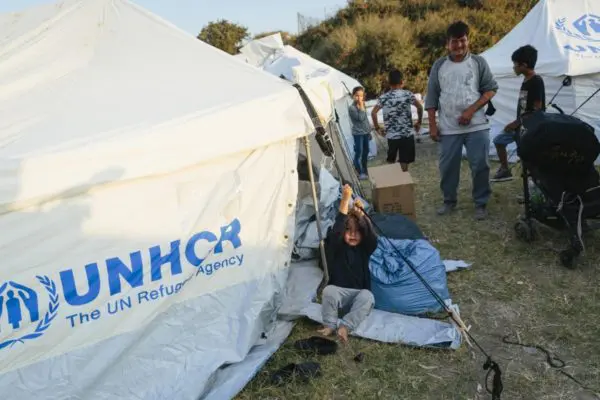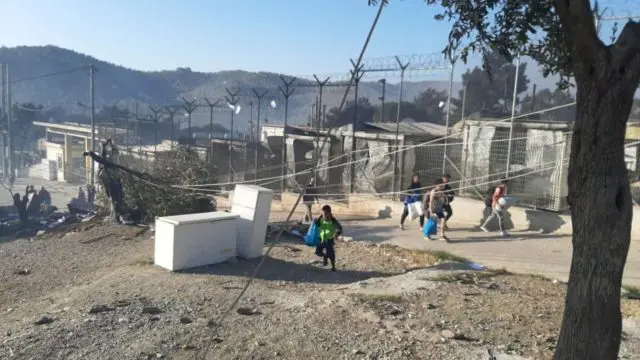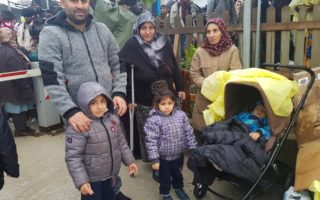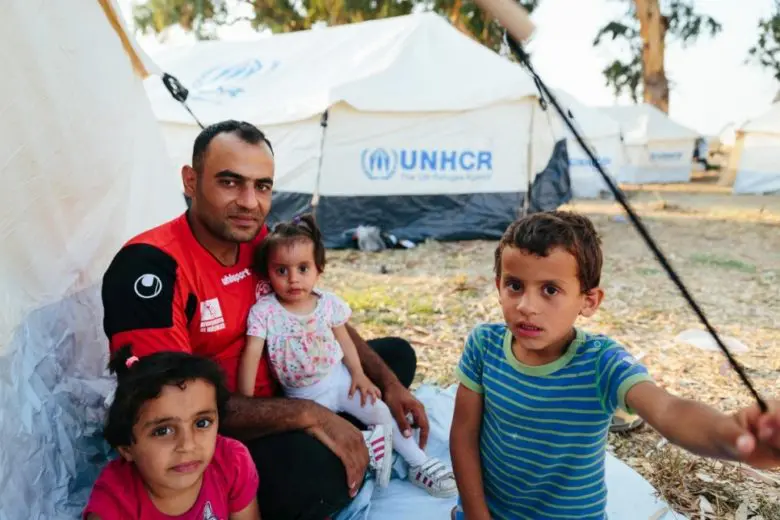
Syrian refugee Mohammed Sadik Jalani and his children sit beside tents set up by Greek authorities and UNHCR to provide shelter after fires destroyed the Moria Reception and Identification Centre on Lesvos. © UNHCR
The tragic images of the last days coming from Lesvos have once more been on the news all over the world. The Reception and Identification Center in Moria has been almost totally destroyed and the whole population on the island, locals, refugees, migrants, are being tested once more. The 12,000 asylum seekers who were staying in Moria, half of them women and children, are once more out in the open.
One million refugees and migrants have sought safety in Europe crossing through the Aegean since 2015. The Greek people know that forced displacement is not something with a beginning and an end. It will exist as long as the causes that drive people away from their homes are still there: war, violence, lack of freedom, absolute poverty and natural disasters. Nevertheless, five years after the refugee reception crisis in Europe, everyone also knows that when a local society is left to bear a disproportionate burden, without coordinated and long-term policies and with limited responsibility sharing, the problem is just perpetuated. And this applies equally to the refugees who are trapped in an uncertainty and to the local societies who have an increasing feeling of abandonment and dead-end.
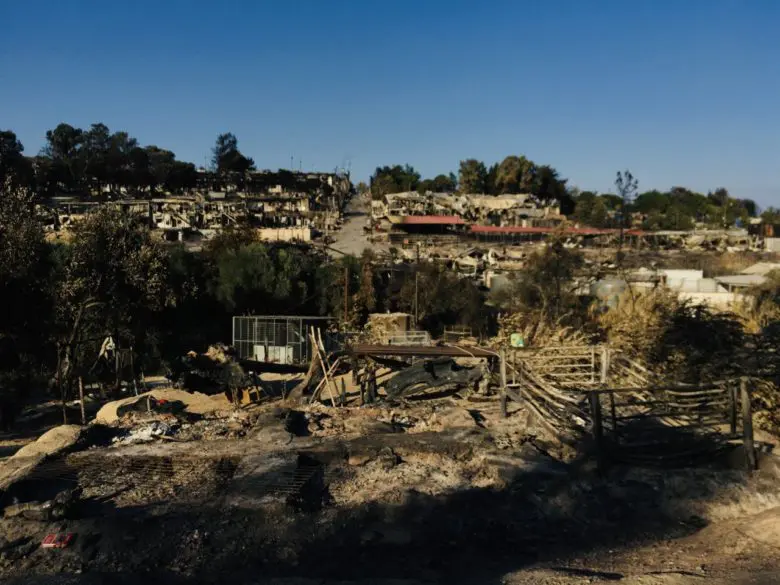
Part of the Reception and Identification Center of Moria on island after the fires that broke out between 8 and 10 September. © UNHCR
In the ashes of Moria what is at stake is not only how to urgently ensure essential aid to people who were affected. The organisations that were already in the field rushed to assist the efforts of the authorities to find urgent solutions. The 400 unaccompanied children of Moria were evacuated to the mainland on the same day. Based on this example of swift response and political willingness we can see the much-needed change take place.
Yes, the fatigue and the problems in the islands’ societies are real and long-standing. More support is needed in practice by EU member states. The recent relocation project for unaccompanied and very vulnerable children has proved that this is feasible. But what is also needed is calm and caution at local, central and European level, as well as the willingness to find solutions. Solutions cannot be found in violence, xenophobic voices or political exploitation. Solutions demand assuming of responsibility and an effort to apply changes so that the dead-end is not perpetuated. The decongestion of the islands’ facilities should continue, the safety, protection and health for all their residents should be ensured, while in parallel, the asylum, reception and integration procedures should be firmly established.
When thousands of families are on the streets, having lost their few belongings amid a pandemic that affects us all, the question is not only whether and where the tents to shelter them can be pitched. What is at stake is whether we will let the ashes obscure the values of life, hope and humanity that the people of Lesvos have so proudly honoured through time, and which have touched the whole world.
Philippe Leclerc, Representative, UNHCR in Greece
DONATE NOW TO HELP THOUSANDS LEFT WITHOUT SHELTER
This is a translation of an op-ed hosted in Greek at the newspaper TA NEA on Saturday, 12 September 2020 and originally published on UNHCR Greece on 14 September 2020



